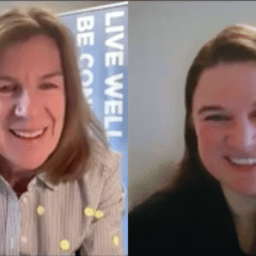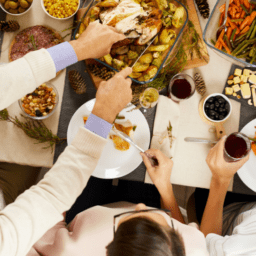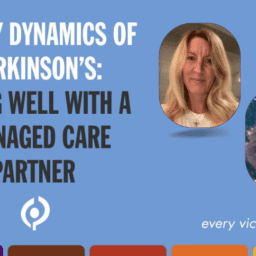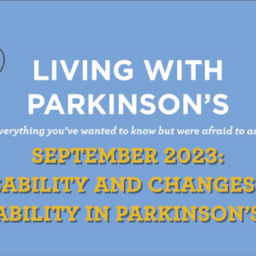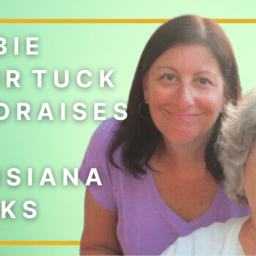NOTES FROM this month’s meetup
Written by Connie Carpenter Phinney
November is National Family Caregivers Month. We marked the occasion with another exceptional Care Partner Meetup featuring special guest Kathleen Crist, MSW, who is executive director of the Houston Area Parkinson’s Society and has been working with people with Parkinson’s for over 20 years.
Also on the panel with me were Davis Phinney Foundation Executive Director Polly Dawkins and two extraordinary care partners and Foundation Ambassadors: Pat Donahoo and Gail Gitin.
Self-awareness, Communication, and Expectations
As we head into the holidays, our conversation this month focused on making the most of the season for yourself, your person with Parkinson’s, and your family/friends. With that in mind, I asked Kathleen to offer her top tip for improving our holiday experience:
“I think that probably the biggest tip is self-awareness immediately followed by communication.”
Kathleen explained that, as care partners, we often don’t prioritize our needs, which is not sustainable and can cloud the bigger picture. She said self-awareness around the holidays means understanding, being mindful, and being respectful of expectations for the holidays—your expectations as well as those of your person with Parkinson’s and other members of your family.
Once the expectations are clear, we can move toward communicating what we need. For some, this might mean leaving a party after two hours or having others provide the food for an in-house party. For others, it might mean finding care for your person with Parkinson’s so you can step out on your own. It might also involve a status report to family and friends to prepare them for how you and your person with Parkinson’s are doing (and what your needs might be).
Be Kind to Yourself
Gail offered sage advice in terms of accepting a more pared down holiday reality and making it work by first rejecting the notion that you are superhuman. “You just can’t do it all,” she said, and counseled us to remember the important part of gathering is the companionship—not the food.
Food, however, is often an important part of holiday gatherings, so to help stay calm and enjoy an event you are hosting, Gail suggests ordering food in advance from your favorite restaurant, deli, or store. She also suggested asking the caterer if they can provide the food in your own pots and pans to make it easier for you to pop the food right in the oven or microwave to warm up.
Gail provided a primer on how to shop for pre-made holiday foods and suggested that stores like Costco and Trader Joe’s have great prepared offerings; her favorites include roast chicken and stuffed peppers at Costco and a cranberry-orange relish from Trader Joe’s.
Her overarching advice is to be kind to yourself–especially when planning for the holidays. She also gave everyone permission to leave the dirty dishes in the sink and do them the following day.
New Traditions
Kathleen discussed how we all have favorite foods associated with the holidays and suggested that it might be a great time to teach your adult children or friends how to make their favorite holiday dish. Let them be responsible for that item. In other words, teach others to contribute.
Pat added that a “new normal” can be fun. As a schoolteacher, he enjoys the extra time off during the holidays, while also noting that this year, he’ll be spending some of those days visiting various doctors with his person with Parkinson’s, Cidney. But Pat likes to travel, so visiting Los Angeles and Chicago can be positive experiences even when the reason for visiting them is medical.
Pat also added that because he and Cidney have a blended family, they are used to managing several scenarios for the holidays. He shared that when he recently had to cancel a trip, the decision was well-received by family because they understand Parkinson’s is not predictable and being a care partner can be unexpectedly taxing. Staying home was a good choice and reduced stress.
The lesson here is to be open to finding new holiday traditions and embrace the new normal.
Symptom Management and Self-Consciousness
Someone asked about feeling self-conscious; I asked Pat how he and Cidney manage when symptoms become overt. Pat said, “We solved that [self-consciousness] by going to a Target store where Cid had to use one of the motorized wheelchair/carts and realized that nobody cared when she bumped into things.”
Pat also noted that Cidney brings her best self to social events, but when her symptoms return, they have developed signals between them to help them craft an early exit. This allows for the opportunity to be present but easily leave before feeling self-conscious about overt and often uncomfortable symptoms.
Kathleen reiterated that holiday gatherings can be a great time to update friends and family about what to expect from their person with Parkinson’s by sending out advance information. Kathleen says this practice “gives people a little bit of a playbook on things that comes from a very genuine place of love and wanting to help. But it’s also useful to set boundaries for where you do and don’t need or want help.”
Communicating an update ahead of a visit is especially helpful to ensure that your inner circle knows how to react in situations that may arise. For example, facial masking (the flat affect often seen on a person with Parkinson’s) can be misinterpreted as not being interested or not understanding. This may result in someone talking to the care partner instead of their person with Parkinson’s. Share with friends and family that it’s important to engage the person with Parkinson’s on their terms; you might also choose to make sure friends and family know that sometimes your person with Parkinson’s can’t respond or might be slow to respond, but that they are probably understanding all of what is said. In other words, we need to remind our friends and family to allow a little extra time in communication.
Managing Anxiety
People with Parkinson’s are known to have anxiety but often, we don’t acknowledge the anxiety felt by care partners. Someone asked about how to manage those feelings.
Kathleen said, “The one thing I know about anxiety is that ignoring it makes it worse. Certain interventions can help, like journaling.” The reason journaling is therapeutic is that it allows you to shed some emotional weight on the page and then let it go. Kathleen stated, “I shred or burn my journals. It’s a tool to help you feel just a little lighter.” I suggested free writing by putting the pen on the page and not lifting it for three minutes: It’s not meant to be published or read by others. Deep breathing, exercise, therapy, and medications also help with navigating anxiety.
We noted it could also be important to let your person with Parkinson’s know you are struggling, because they might be able to help recognize your distress and remind you to take care of yourself.
Something else that helps me is abstaining from reading or watching the news after 6 pm. I call this a “media diet.” It really helps reduce stress and keeps me focused on what I can do. Try it!
Pain in Parkinson’s
One of our listeners was caring for her mother who seemed to be in chronic pain and was unable to give the family breathing room to enjoy the holidays.
Kathleen said to start first with communication to understand the situation better; she talked about finding alternative care for a few hours to make time for normal family activity. Communication and setting boundaries helps create an environment where everyone gets what they need to whatever extent is practical–which brings us back to accepting the “new normal.”
Kathleen advised scheduling an appointment with a member of your care team to confirm that there is no urgent health need that is causing pain.
Bruce’s Wisdom
Lastly, Bruce added this bit of wisdom; he puts this on his calendar and annually reads it just after Halloween:
Six Ways to Deal with Difficult Family Members
- Have compassion for their unhappiness.
- Create strong boundaries with them.
- Examine your reactions to their behavior.
- Don’t engage with their bad behavior.
- Spend less time with them.
- Grieve the loss of the “ideal” family.
Next Meetup: December 5
Thanks for reading the meetup overview!
Please join us on the first Tuesday of December–and the first Tuesday of every month–at noon (MT) for another Care Partner Meetup. Sign up here to receive links to join us live.
Take care!
Additional Resources
Other Content about Navigating the Holidays
How to Communicate What Parkinson’s Is to Friends and Family
Pain in Parkinson’s—A Conversation with Dr. Jori Fleischer
Davis Phinney Foundation Care Partner Resources
Connie’s Recent Article on Resilient Care Partnering in Psychology Today
Would you like more information
on being a Parkinson’s care partner?
You can learn much more about living well as a Parkinson’s care partner today through our Every Victory Counts® Manual for Care Partners. Click the link below to get your free manual now.
Thank you to our 2023 Peak Partner Amneal for allowing us to make the manual for care partners available and free to all.








